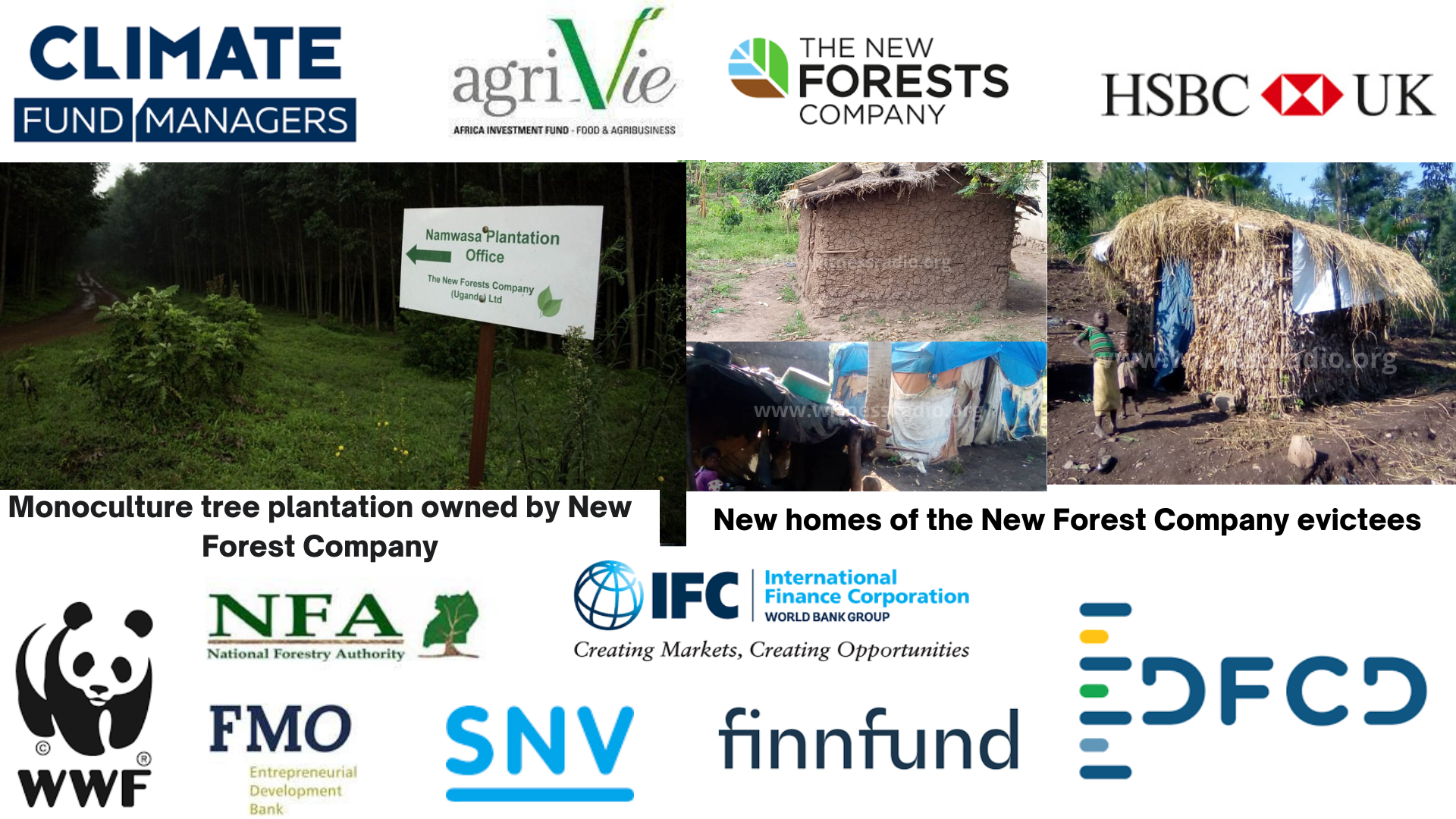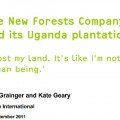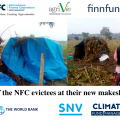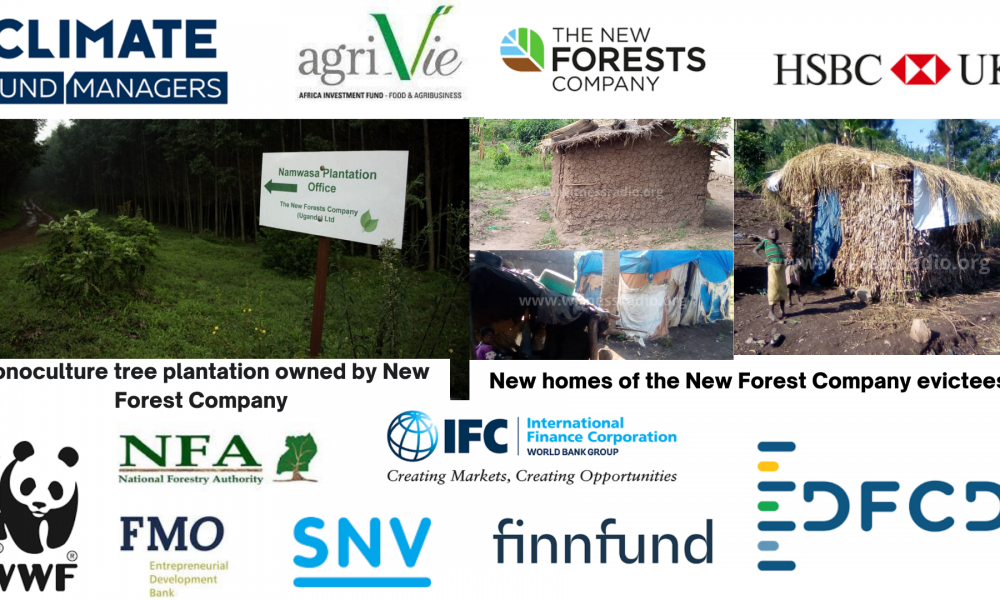In the early 2000s, neighbouring villages envied Kanamire, a village located in the Mubende district, in the central region of Uganda. It had made a name in farming, and its story of success was spreading like a wild bushfire. Its inhabitants had set a high bar for anyone who practiced small-holder farming. The arable land and farming practices was the magic behind their success.
Kanamire’s villagers used to spend the entire day either tilling their gardens or weeding their crops in anticipation of a bountiful harvest.
“The population in the village had surged and was now entirely thriving on farming. Bigger and sprawling shops were everywhere. Houses made of baked brick were replacing the grass thatched ones. We proudly called it home,” 54-year-old Obutu Danial reminiscences about the heydays.
As a norm, amongst the rural women, there is an unwritten creed of maintaining peace with your neighbours. The first person to harvest, at least, shared part of the harvest with the neighbours. This belief had stood the test of time and Kanamire’s women were no exception. “We had enough land. We grew enough food for the families. We would give yields to our neighbours, for example beans, and in return, they would also do the same when theirs are ready. And [we would] also sell the surplus to cater for other needs”, a woman farmer reveals.
Twenty years down the road, the exemplary village no longer exists. Acreages of banana, coffee and maize crops, among others, were razed down, and families were brutally evicted by the London-based New Forests Company (NFC).
New Forests Company and the carbon market
NFC was founded in 2004 with the “vision” of producing “sustainable” timber in East Africa amidst rampant deforestation. It was funded by Agri-Vie Agribusiness Fund, a private equity investment fund, and UK-bank HSBC Private Equity. The East Africa region in which Uganda lies is one of the most fertile regions and thus, it was chosen for the plantations business.
In 2005, the tree plantations company signed a deal with Uganda’s National Forestry Authority (NFA) to develop 20,000 hectares of tree plantations in the Namwasa and Luwunga forest reserves under the carbon trading program, a market-based approach to privatize the carbon dioxide stored in trees for selling it as carbon credits to polluters. This generates additional profits for the Company.
NFC is currently also benefiting from a new project supported by the Dutch Fund for Climate and Development (DFCD); a 160 million euros (more than 185 million dollars) from Dutch government fund that aims to mobilize private sector finance into carbon projects. The DFCD is managed by investment manager Climate Fund Managers (CFM), NGO Worldwide Fund for Nature Netherlands (WWF-NL) and NGO SNV, and it is led by the Dutch Development Bank, FMO. (1)
On august 2020, DFCD approved a 279,001 euros (around 327,000 dollars) grant and WWF technical assistance package for The New Forests Company (NFC), with the aim of developing the final business investment proposal for carbon certification in Uganda, for sustainable smallholder growth and timber market diversification. This in reality would translate into generating carbon finance to support expanding their monoculture plantations and land grabbing.
The Kanamire village’s eviction
The National Forestry Authority (NFA) is a Government agency established under the National Forestry and Tree Planting Act of 2003, as a corporate body responsible for the so-called “sustainable development,” the management of Central Forest Reserves (CFRs) and the provision of technical support to stakeholders in the forestry sub-sector.
Between 2006 and 2010, more than 10,000 people were evicted from their lands in the district of Mubende to make way for the NFC plantations. Despite this, in 2008, the Uganda Investment Authority, which is mandated to “advise Government on appropriate policies conducive for investment promotion and growth” (2) named NFC an ‘Investor of the Year’ for planting monocultures of pines and eucalyptus while villagers miserably live on a barren and crowded piece of land.
In February 2010, residents of Kanamire woke up to a hail of NFC representatives and graders, who were under the protection of the Uganda People’s Defense Forces (UPDF) and the Uganda Police Force (UPF), which in turn were under the command of the then Mubende Resident District Commissioner Nsubuga Bewaayo. They destroyed the villagers’ properties worth billions of Uganda shillings before the forced eviction, to give way for a NFC monoculture plantation.
The others villages that suffered forced eviction in the Mubende district due to NFC plantations are Kyamukasa, Kigumya, Kyato, Kisita, Mpologoma, and Bulagano villages.
Three years after the evictions, NFC agreed to resettle victims after fretful engagements with human rights activists and other villagers’ supporters addressing the violence that locals experienced during the evictions.
In an agreement signed by the company and the villagers of Kanamire, NFC agreed to pay them a total of 1.2 billion Uganda Shillings (around 340 thousand dollars). And residents were requested to form and join a cooperative society, which would allocate half of the money to buy land and the other half to cater development projects, such as boreholes and schools. Evictees were forced to pay subscription fees to become a member. Those that had no money by then to join the cooperative, were not included in the resettlement process. (3)
“We formed Bukakikama Cooperative Society and 600 million [Uganda Shillings] for land was wired on the cooperative account,” (around 170 thousand dollars) Mr. Bakesisha William, the former cooperative chairman said.
Mr. Bakesisha said the 600 million Uganda Shillings bought land equivalent to 473 acres (around 190 hectares) in the Kampindu village, in the Mubende district. Out of the 901 families, 453 were allocated 1 acre (less than half an hectare) of land. The remaining 448 families haven’t been compensated or resettled up to date.
Everyone in the cooperative had to pay 30,000 Uganda Shillings (around 8.5 dollars) to join. There were additional payments victims had to make, namely: 3,000 Uganda Shillings (almost one dollar) for having a share in the Cooperative and 5,000 Uganda Shillings (1.42 dollars) as the initial saving pot. Upon the fulfilment of the above required payments, the cooperative chairman would issue identification numbers.
And only those who had met such requirements would be registered as an eligible member of the cooperative to benefit from one acre of land to resettle.
In Kampindu, the place where the evictees from Kanamire were ‘resettled’, malnourished children in tattered clothes wandering all over the village are your first sight. The angry, hungry and mean-looking youth and their fatigued elders are crowded in makeshifts and muddy houses. Others with hoes on their backs and dirty feet reveal their destitution.
Even those that received one acre of land are not in any way better than those that did not receive it. They too are wallowing in poverty. They were resettled on a barren piece of land.
It has been established that even what is supposed to be claimed as resettlement has not been met. No relief support was offered, like basic housing, foodstuffs, water or clothing. They were dumped and abandoned by the UK-based multimillionaire company.
“Both groups are living poor lives. Those that got a chance to resettle on an acre of land are suffering. The land is too small to cultivate. It is located in hilly areas that can’t either be built in or be farmed. And the others that had no chance are starving and working as labourers on other people’s plantations for survival. About 5 cases of fatality resulting from the displacement have been recorded in the areas,” a researcher at Ugandan media platform Witness Radio noted.
Mr. Rwabinyansi Charles is one of those that were allocated land in Kampindu. The 75-year-old father of 11 cannot forget the ruthless manner in which NFC grabbed his land and threw him at Kampindu, a place he describes as hell.
“It is as if I don’t have land. Look, it is filled with stones hard to build in or farm. When you plant crops, they dry. Look at the maize that was planted last season,” he said while referring to a piece of land he had received from NFC.
11 years back, Mr. Rwabinyansi was a happy villager. Before his eviction, he had 30 acres (around 12 hectares) filled with crops of coffee, bananas, cassava, among others. Besides this, he also practiced animal husbandry on his land.
“On a good season, I would harvest over 30 bags of coffee, 20 of maize, and 15 of cassava. I would sell them while my wife at home would grow what fed us. We also sold the milk from our four cows, so it was indeed a good life,” he narrated.
Now, on a well-wisher’s piece of land in Kampindu, stands a makeshift tent that Mr. Rwabinyansi and his family call home, but that is just the tip of the iceberg. Not even death will relieve the eviction-related pain because even in death, the eviction has continued to haunt them.
“I cannot build on that land. It is not safe for me. I cannot also build here, because any time, the owner may want to use it. I recently lost my daughter in law and I had nowhere to bury her”, he reveals.
When someone dies, among the Baganda indigenous, a condolence message is accompanied with a decent burial and a farewell message to the deceased, “Wummula mirembe” which is akin to “Rest in Peace”, however, this was not the case for Mr. Rwabinyansi’s daughter in law. “We struggled to get where to bury her. But finally, God had mercy on us. A nearby friend gave a portion of his land to lay her to rest,” he added.
The chairperson of the affected communities for NFC, Mr. Julius Ndagize, faults the criteria that informed the processes of allocating the evictees the one-acre piece of land.
“Firstly, the land is too small to accommodate all of us, and the procedures of first buying shares and savings in the cooperative were also not favouring my people since they had no money. People including those who got land to have nothing to eat. Imagine a family of 15 children, all have grown and built on the same land, where will they dig. The only benefit that the group which got land has ahead of those that did not get is that they have where to bury their beloved ones,” he explained.
The pain of losing a promising young generation to an eviction
The evictees are now grappling with shocking eviction-related consequences, including child pregnancies, child labour, and school dropouts.
“Cases of early marriages and child labour are high in the area, children no longer go to school because ideally if a parent lacks what to eat, can he educate a child. And people are dying because they have no money to go to the hospitals” he further said.
Mr. Ndagize said the smallholder farmers are now working as casual labourers. “Given the fact that the land is small and infertile, these people go and work in the neighbouring farms to get what to eat,” he added.
Smallholder farmers’ contribution to the national food basket remains unrivalled, but when you speak to them, they believe they have been let down by their government, and thrown under the bus by multinationals like NFC.
“If agriculture is the backbone of Uganda as they say, why do they take the small we have, we were not starving, and neither were we begging anyone. But look at me now. Next time you will either find me on the streets begging or dead in my house,” depressed villager Rwoga Nyange concludes.
Efforts to talk to the Corporate Social Responsibility Programme Manager from New Forests Company, Mr. Kyabawampi Alex, were unsuccessful, as he did not respond to Witness Radio’s emails by press time.
Witness Radio – Uganda
(1) WWF, The DFCD supports in carbon certification in Uganda, August 2020, https://www.wwf.nl/wat-we-doen/aanpak/internationaal/Dutch-Fund-for-Climate-and-Development/The-DFCD-supports-in-carbon-certification-in-Uganda
(2) Uganda Investment Authority, https://www.ugandainvest.go.ug/about/
(3) Witness Radio, The Agony of a Tree-Planting Project on Communities’ Land in Uganda, in WRM Bulletin 251, September 2020, https://wrm.org.uy/articles-from-the-wrm-bulletin/section1/the-agony-of-a-tree-planting-project-on-communities-land-in-uganda/
This article was first published by WRM Bulletin 257 on 27th/Septmember/2021


 MEDIA FOR CHANGE NETWORK1 week ago
MEDIA FOR CHANGE NETWORK1 week ago
 MEDIA FOR CHANGE NETWORK2 weeks ago
MEDIA FOR CHANGE NETWORK2 weeks ago
 FARM NEWS1 week ago
FARM NEWS1 week ago
 MEDIA FOR CHANGE NETWORK4 days ago
MEDIA FOR CHANGE NETWORK4 days ago
 MEDIA FOR CHANGE NETWORK4 days ago
MEDIA FOR CHANGE NETWORK4 days ago
 MEDIA FOR CHANGE NETWORK2 days ago
MEDIA FOR CHANGE NETWORK2 days ago
























